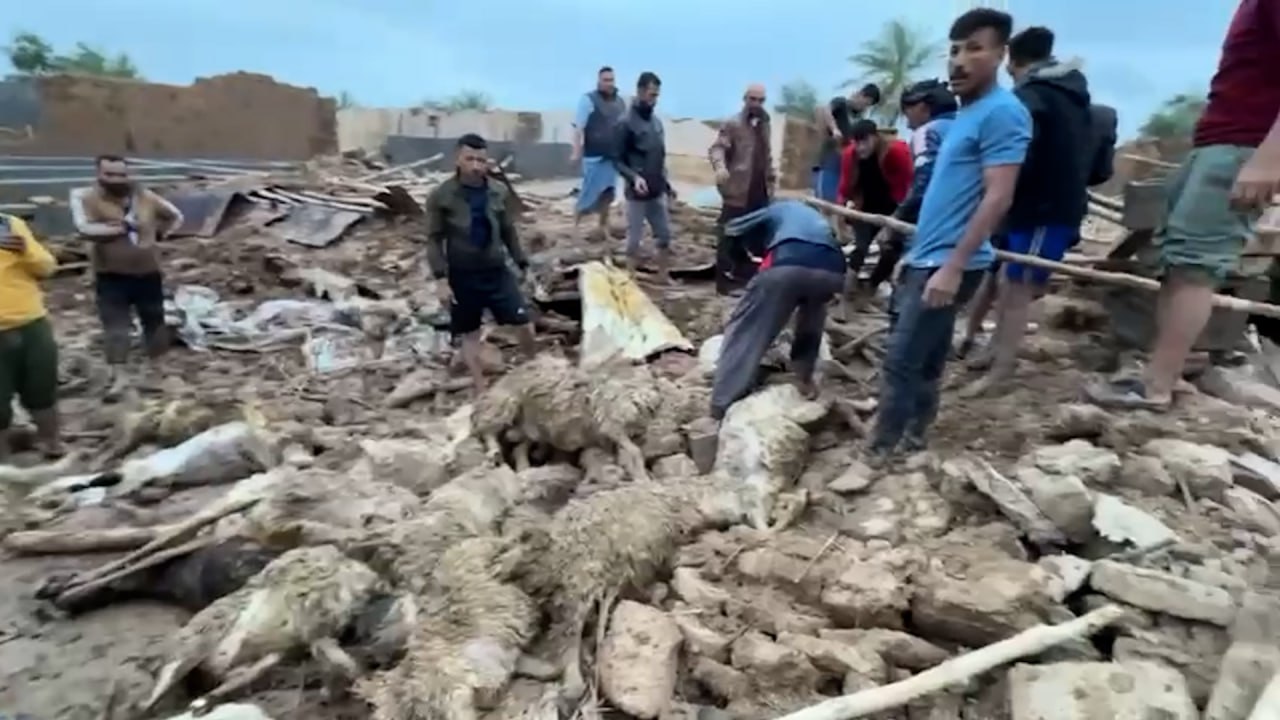Kurds in Northern Syria Warn of Water Crisis

CAIRO - Ibrahim al Hamadi, a farmer in the largely Kurdish region of Kobani, tries to plow his parched field in northern Syria as water levels on the nearby Euphrates river appear to be at historic low levels.
The river's water levels in northern Syria have fallen dramatically in recent weeks as Kurdish officials there accuse Turkey of reducing the volume of water flowing downstream. Turkish officials have not commented on the accusations but say Turkey, too, is experiencing water shortages. At the same time farmers are voicing concerns about a situation that some analysts say could further destabilize the region.
Hamadi says he needs to work his fields or he will die of starvation, but water levels continue to drop. He says that areas of dry land that have appeared were once part of the river until water levels started to drop in February, leaving white silt and mud flats in some places.
Abdallah, a middle-aged farmer from Hasakah, told Arab media Turkey is responsible for drying up the Euphrates.
He says that water affects man, agriculture and nearly everything. The U.N., human rights groups, and the whole world, he says, need to bring the water back, because water is life for man.
Turkish officials told Arab media that Ankara is experiencing serious water shortages, as well. Turkey in the past has temporarily reduced the river’s flow during times of drought.
Iraq's water minister, Mehdi al Hamadani, recently told a conference in Baghdad the water crisis is affecting Syria, Iraq and other countries in the region to the point of damaging both the land and the environment.
He said that the areas around the Tigris and Euphrates rivers have witnessed serious droughts in recent years, increasing evaporation and major environmental issues in Iraq and its neighbors.
Hamed al Hamadi, an engineer at Syria's Tishrin Dam along the Euphrates near Aleppo, complains about the falling levels of water on Lake Assad, downstream.
He says Syria needs a strategic water reserve for both agriculture and drinking water, in addition to electrical production. The level of the lake has fallen by half, causing a crisis.
Electrical engineer Ahmed Asso, who works at the Tishrin Dam's power-generating plant, says that water flows from Turkey have fallen for the past two months from a normal 500 cubic meters to just 200 cubic meters per second, causing electricity shortages.
He says that current water levels at the dam only allow for the production of 70 megawatts of electricity, or 10% of electricity requirements for northern Syria. Most towns in the region, he says, are getting just six hours of electricity per day with blackouts of 18 hours.
Farmers say ground water aquifers are at their lowest in memory, with some warning of a catastrophe for Syrian agriculture if the Euphrates remains at current levels.
Observers say Turkey’s hydroelectric and irrigation projects have brought stresses on water, energy and food security in Syria and Iraq for many years. Some analysts point to drought in Syria’s heartland as among the causes of the country’s decade-long civil war.
Meanwhile, further downstream, Iraq has been negotiating with Turkey in recent days to try and fend off the impending water crisis on both the Tigris and the Euphrates. Turkish parliament officials say an agreement between the two countries is near.
Tensions between Syria and Turkey, however, are not close to being resolved.

